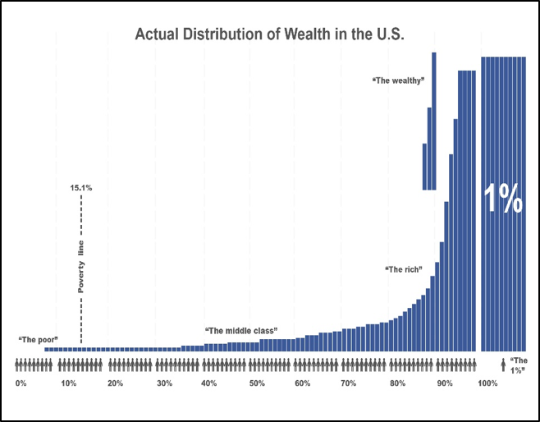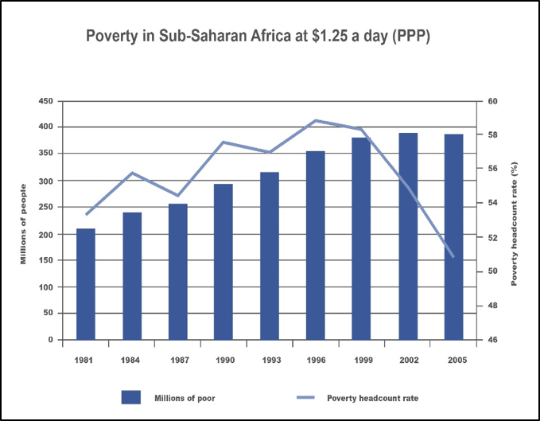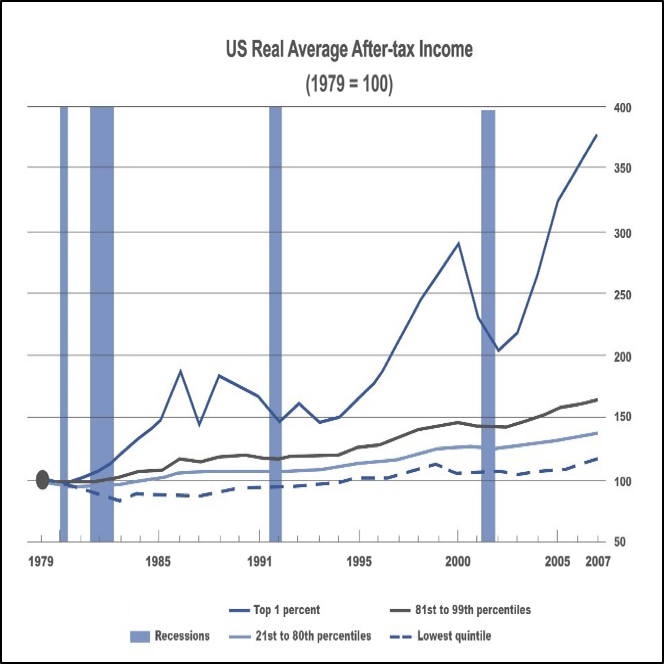Yet, as a result of setbacks with democracy, education, and technology, many countries are being governed very ineffectively, and voters are either too uneducated or too worried about providing for their families to do anything about it. This is making it much harder for the world community to effectuate the changes that are needed to avoid catastrophe.
Between climate change, terrorism, technological unemployment, pandemics, economic collapses, natural disasters, and growing first-world inequality, there are some very serious issues facing our species that require equally serious solutions.
So, to summarize the bad news covered in the first half of this book:
● First-world democracies are being hijacked by special interests and big money;
● Educational systems are leaving students woefully unprepared to participate in the modern, global economy where only highly skilled labor jobs matter, as software and automation replace low skill jobs;
● Network technologies are making it much easier for single corporations to rapidly take over entire industries and form job destroying monopolies;
● To add insult to injury, each structural problem is making the others even worse, leaving the human race completely unequipped to face the many complex threats facing humanity.
We understand if you winced a little while reading all that; it wasn’t particularly fun writing it, either. That said, in the interest of clarity, I’d like to elaborate just a little on these points before moving forward to examine what we believe are the most dangerous global problems. I promise I’ll make it fast.
First, the hijacking of democracy has left the governments of many influential countries unable or unwilling to respond to the worldwide issues humanity must deal with. As a species, we’re facing challenges that very clearly require visionary leadership and innovative thinking to address them comprehensively.
At the same time, because of the erosion of democracy in leading countries such as the United States, the governments that would be most able to push forward international efforts to meet these global challenges are being held back by utterly dysfunctional political systems. As the world watches this dysfunction unfold, global enthusiasm for democracy wanes, and other more dangerous forms of government (which we’ll discuss later) become more appealing. This puts humanity in danger of backsliding.

Meanwhile, many educational systems are failing to give students the skills they need to succeed in the post-industrial workforce and become productive members of society.
Even as secondary and postsecondary education becomes more important to prosperity, underfunded schools are forced to hire teachers from the bottom half of graduating classes. Those teachers go on to inadequately educate their students, many of whom eventually go on to become the next generation of teachers. As this happens, a “dumbification cycle” is created which produces consistently less capable graduates each time the cycle repeats. Consequently, students around the world are expressing their frustration with schools they see as having wasted years of their life, actually sabotaging their chances of success rather than enhancing them.

Next, while democracy and education falter, the Network Effect threatens to create behemoth global corporations that monopolize entire fields. As these tech-heavy companies evolve, they shed their human assets in favor of more efficient robotic workers. This leads to unemployment, which shrinks the middle class, concentrating wealth and political power at the top to an even greater degree.

These social, political, and economic structural problems are putting many of the world’s most powerful countries in a position where they aren’t equipped to deal with important crises, e.g., climate change, government shutdowns, the expansion of international terror networks, and the global spread of drug resistant diseases, to name but a few.
There are other examples:
● We are still exploring new fossil fuel resources even though our top scientists tell us that our burning of the many fossil fuels we have already extracted will cause irreversible global catastrophe.
● Major political parties across the world are becoming more polarized each year, as each election cycle pushes them further away from the center.
● Rather than find ways to properly integrate disaffected segments of society, many countries are choosing to go down dangerous, authoritarian paths in order to feel secure against global terror.
● Despite their role in creating superbugs, antibiotics are still one of the most over-prescribed medications in the world, leading to more resilient and deadly diseases every year.
And, while all the problems discussed in this chapter are real and require serious attention, there are three core problems that worry us, at empowr, the most (and for which we’ve spent the last decade and a half working on solutions):
● Poverty and inequality
● Terrorism and extremism; and
● The backsliding and destruction of democracy.
The growing dangers of poverty and inequality
At first glance, statistics show that poverty and inequality may be problems that are shrinking at a rapid rate. However, in large part because of China’s unsustainable economic growth, assessing either statistic on a global level is misleading.
The fact is that inequality in industrialized nations grows worse every year, and, when China is excluded from measures of global poverty, the problem seems barely to have been addressed by some of the world’s poorest regions.
This should concern everybody because both issues, historically, have had some very nasty consequences.
In recent years, leaders around the world have been patting themselves on the back over the perceived progress in the global fight against poverty. And, to their credit, a few aspects of worldwide poverty are being addressed in some noteworthy ways: for example, the global childhood mortality rate has fallen by nearly 50% since 1990; pregnant women in many poorer countries are receiving improved prenatal care. On the surface, even the overarching problem of global poverty itself appears to have been addressed meaningfully in the past two decades, with the poverty rate falling 25%-30% since 1981.
Unfortunately, a more detailed examination of the poverty numbers shows that China accounts for the vast majority of the reduction in global poverty. This is largely due to the huge trade surplus China has been running for the past decade, with industrialized nations pumping tens of billions of dollars into its economy every year.
Without China, improvements in global poverty have been mediocre at best, with only a dismal 5%-10% reduction over the course of the past two decades contrasted with huge advancements in technology and the continued march of globalization. Adding insult to injury, in a number of critical regions, the number of people living in poverty has actually increased in recent years, with sub-Saharan Africa being among the most worrisome.

Worse, as I’ll discuss in greater detail later on, China’s current economic model is simply not sustainable in the long term. The impact that the shrinking of China’s trade surplus will have within its own borders and on the global poverty numbers is not certain. But, as democratic reforms are slowly rolled back within that country, as income inequality grows (now even exceeding U.S. numbers), as a monstrous real estate bubble prepares to burst, and as some minority populations become further disenfranchised every year, many global authorities have begun to express a great deal of concern.
Inequality is a growing problem for the world's most powerful and influential nations
Even though inequality has been “reduced” on a global level, rising rates of inequality in the world’s most powerful countries threaten everything from the effectiveness and desirability of democracy to the very stability of the global economy. Worldwide inequality has fallen as wealth from industrialized nations and their post-industrial economies has been pumped into developing countries, due in large part to the availability of cheap manufacturing labor within those countries. Despite this phenomenon, many first-world nations are being forced to come to terms with the issues created by increased economic inequality within their own borders.
The United States is perhaps the best example of the threat posed by this growing first-world inequality. The percentage of national wealth controlled by the top 1% of American society has skyrocketed since 1980. While the share of U.S. income going to the top 1% of earners has jumped over the past half century, America’s middle-class has seen its income growth stagnate, and some of the poorest segments of society have seen their standards of living actually fall. Currently, over 45 million Americans and nearly one out of every five American children live in poverty.

This doesn’t just pose an enormous credibility and public relations problem for a country that has been selling the American Dream to the world for the past century. As inequality grows, so do a number of very severe problems, such as declining social mobility, decreased political stability, a less healthy population, reduced child well-being, increased prevalence of mental illness, rising prison populations, and lower educational scores, to name just a few. The damage that inequality is causing to the very fabric of society in a number of industrialized nations comes as no surprise to many historians and prominent public figures who, for years, have been warning of the dangers that inequality poses to our world.
The upshot of these two growing problems is that the gains that have been made in first-world nations since the end of World War II are being threatened by the very issues they committed to addressing in other developing and third-world nations back in the 1990s. The irony of this situation could be humorous, if not for the fact that poverty and inequality have led to revolutions or even worse, over the course of human history. |